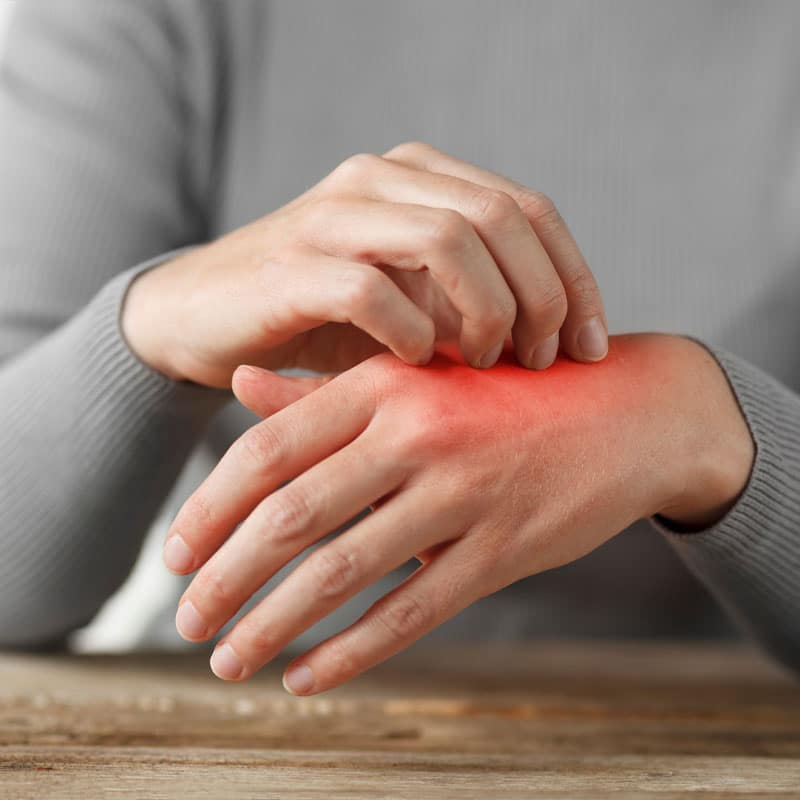Replace Deficient Nutrients
When you have a hormonal disorder, it can manifest in your skin. For example-
Nutritional deficiencies can cause a host of skin issues. Functional medicine works to determine if you have any nutritional deficiencies like vitamin A, B vitamins, vitamin C, vitamin E or omega 3 fatty acids. Below are some common skin issues associated with nutritional deficiencies.
Acne – Acne can be caused by several things, including hormonal imbalances; however, it can also be caused by a lack of zinc or essential fatty acids (omega 3s) in your diet.
Dry Skin – Dry skin can be caused by dehydration; however, it can also be caused by a nutritional deficiency of potassium. Vitamin A, vitamin D, vitamin E or essential fatty acids.
Small Bumps on the Back of Your Arms – If you have small bumps on the back of your arms, it can signal a nutritional deficiency including vitamin A, vitamin E, omega 3 fatty acids, or zinc.
Replacing these nutrients can be done using a vitamin and mineral supplement; however, experts recommend that most of your nutrition should come from your foods. Eating a diet filled with whole foods is the best way to ensure you are getting the nutrients that you need. Knowing where to get these essential nutrients is half the battle.




















